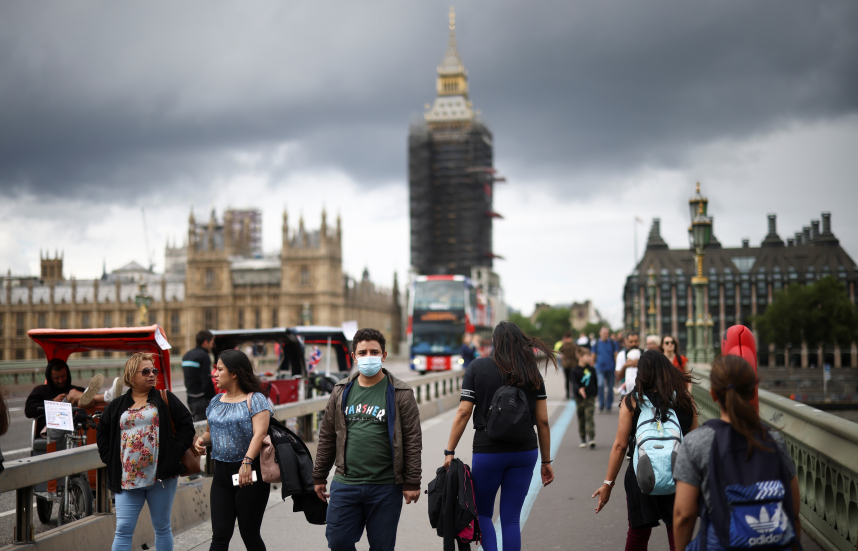
British Prime Minister Boris Johnson set out plans on Monday to end social and economic COVID-19 restrictions in England in two weeks' time, a test of whether a rapid vaccine rollout offers enough protection from the highly contagious Delta variant.
Johnson confirmed the government aimed to end restrictive measures on July 19, with a final decision to be taken next week. He said the step would eliminate formal limits on social contact, the instruction to work from home, and mandates to wear face masks.
After imposing the most onerous constraints on behavior in Britain's peacetime history to battle the novel coronavirus, Johnson is betting the vaccination program, which has weakened the link between infections and hospital admissions, can prevent the health service from being overwhelmed by a new wave of COVID-19.
Under the plans, nightclubs will be allowed to reopen and there will be no limits on the capacity for hospitality venues. Social distancing guidelines will be scrapped.
Johnson's government sets health policy for England, but not for Scotland, Wales, or Northern Ireland.
Britain has suffered the seventh-highest global death toll from COVID-19, and Johnson has been accused of being too slow to implement each of England's three lockdowns.
But the take-up of vaccines in Britain has been strong, with 86% of adults receiving a first dose and 64% receiving two doses as of Monday, according to government data.
Public Health England figures indicate that the vaccines are highly effective in preventing the Delta variant from leading to severe illness or hospital admission, especially after two doses.